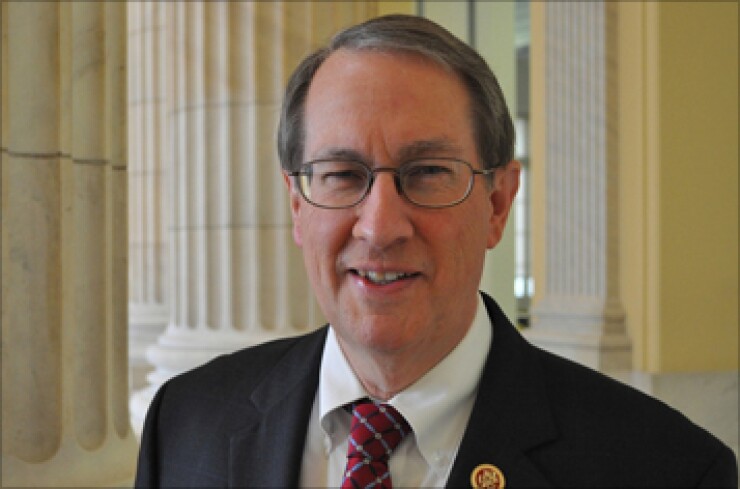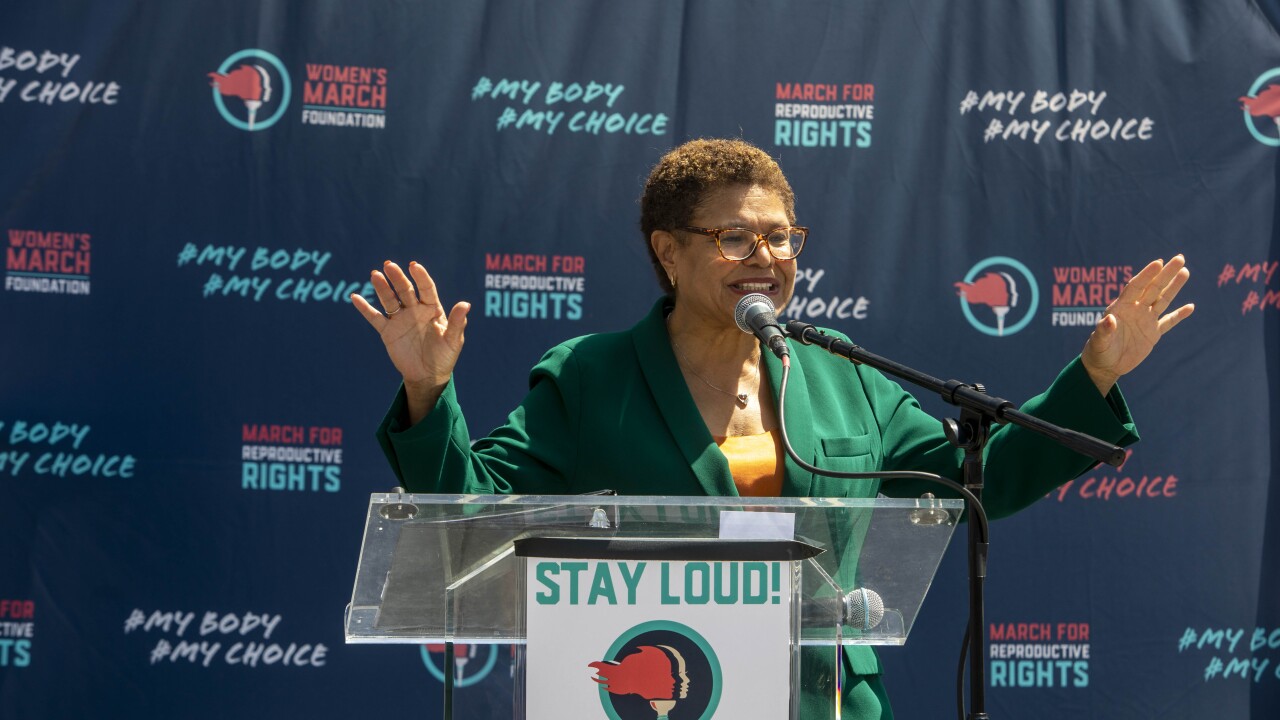
WASHINGTON – Two House Republicans presented a committee with their legislative proposals to reform or abolish the federal income tax system, sparking concerns from some members of the municipal bond community.
Speaking before the House Ways and Means Tax Policy Subcommittee Wednesday, Reps. Roger Williams, R-Tex., and Bob Goodlatte, R-Va., said their bills would lead to a fairer, flatter and simpler federal income tax system.
The hearing on Wednesday was the tax policy subcommittee’s second on fundamental tax reform proposals, and this week’s specifically focused on legislation targeting the income tax.
Williams talked about the Jumpstart America Act, a collection of seven tax reform bills introduced last June and July. That package includes the Individual Rate Implication Act (H.R. 2842); Incentivize Corporate America Act (H.R. 2946); Invest in America Act (H.R. 3017); Bring Jobs Back to America Act (H.R. 3083); Fixed Asset Relief Act (H.R. 3213); and Paycheck Relief Act (H.R. 3267) as well as H. Con. Res. 69, which would keep the last-in, first-out method of accounting for inventories.
Williams’ collective plan would lower the corporate tax rate to 20%, which he said would increase investment in infrastructure and make businesses more competitive on an international scale. It also would lower individual tax brackets to 20% and 30% and would cut payroll taxes by 2%.
The capital gains and dividends tax would be reduced to between 0% or a maximum of 15%, and the bill would allow for 100% depreciation of fixed assets. The inheritance tax would also be eliminated. Williams said his plan would provide relief for small businesses.
But Frank Shafroth, the director of the Center for State and Local Government Leadership at George Mason University, said that Williams’ plan would radically increase the federal debt and deficit, which state and local governments cannot afford.
“Because of the singularly reduced rates, it would reduce incentives for Americans to purchase state and local bonds,” Shafroth said. “It would perhaps better be named as the Mandatory Increase in the Cost of Education, Safe Drinking Water, & Transportation Act – as it would singularly increase the cost of the state and local public finance which provides the nation’s critical infrastructure.”
Goodlatte this year introduced the Tax Code Termination Act (H.R. 27), which would repeal the current tax code at the end of 2019. It would also require Congress to adopt a new tax system by July 2019. That plan, which uses the motto “sunset the tax code,” would abolish all of the current code minus payroll taxes. It currently has 129 co-sponsors, and was referred to the House Rules committee in January.
The Virginia Congressman said he hoped setting such a deadline would move tax reform to the “front burner.”
“While the bill does not advocate for one tax system over another, it does outline a framework for Congress to consider,” Goodlatte said.
Shafroth said Goodlatte was simply seeking a state and local tax increase.
“There is something terrifically taxing to the nation’s state and local leaders….to say one is going to eliminate the current code and make up some new code in the fuzzy future,” he said. “That could only foist higher interest rates on municipal bonds issued by state and local governments – thereby forcing higher state and local taxes and higher rates on utilities.”
In an opening statement Wednesday, tax policy subcommittee chairman Rep. Charles Boustany, R-La., said Goodlatte and Williams’ proposed legislation make the current tax code “more conducive to economic growth.”
Boustany called the current tax code “complex, unfair and outdated,” while tax policy subcommittee ranking member Rep. Richard Neal, D-Mass., said a new code that “promotes job growth, lifts wages for all workers, and grows the middle class,” needs to be developed. Developing a consensus plan will be unlikely, he added.
“If you really want tax reform, you’re going to have to swallow some things you don’t like,” Neal said.
While tax reform is not likely in an election year, most involved in this week’s hearing agreed that the current system is in need of improvement, and that time is of the essence.
“Ultimately, the Ways and Means Committee must weave the most pro-growth concepts and ideas into a bold plan that fundamentally and comprehensively reforms our tax system,” Boustany said.
“We’ve been talking about it [tax reform] and now we need to get it done,” added Rep. Jim Renacci, R-Ohio.
Thomas Barthold, the chief of staff of the Joint Committee on Taxation, also spoke Wednesday about the Tax Reform Act of 2014 (H.R. 1), the legislation introduced by former Ways and Means Committee chairman Dave Camp, R-Mich., in December of that year. The Camp bill proposed broadening the income tax base while lowering statutory tax rates, and Barthold used it as an illustration a roughly revenue neutral plan that would increase the cost of capital.
Camp’s bill proposed capping the value of the exemption for munis at 25% and eliminating the tax exemption for qualified private-activity bonds and advance refunding bonds issued after 2014. It also would repeal the corporate and individual alternative minimum taxes.
Conversely, should Congress pursue a tax plan that reduces the cost of capital through expensing, Barthold said business tax receipts would be dramatically lowered.
“We’d probably run a larger deficit then,” Barthold said. “That can drive up interest rates and real interest costs – which are a negative to cost calculation.”
Several muni experts and a Treasury official told The Bond Buyer in 2014 that they had concerns with Camp’s plan, specifically in regards to its curbing of the muni exemption to pay for other aspects of tax reform.
The tax policy subcommittee held its first hearing on tax reform on March 22. That hearing, which focused on shifting from an income tax base to a consumption or cash-flow tax base, included testimony from Reps. Devin Nunes, R-Calif.; Michael C. Burgess, R-Tex.; and Robert Woodall, R-Ga.
The committee has increased efforts to promote tax reform ahead of this year’s income tax return filing deadline, which is April 18.
Rep. Kevin Brady, R-Tex., the chairman of the House Ways and Means Committee, is also leading a committee-led task force on tax reform that aims to limit the deductions, exclusions and credits in the current code.





